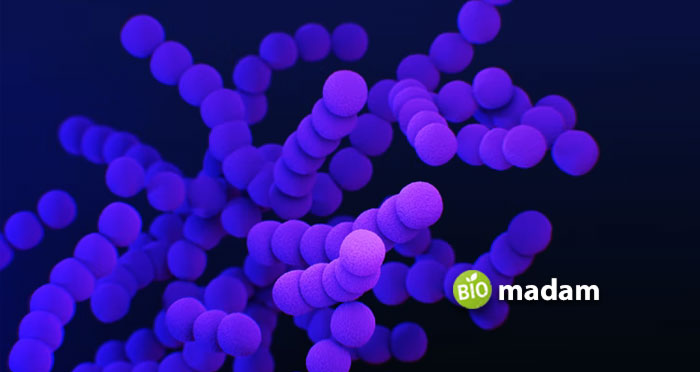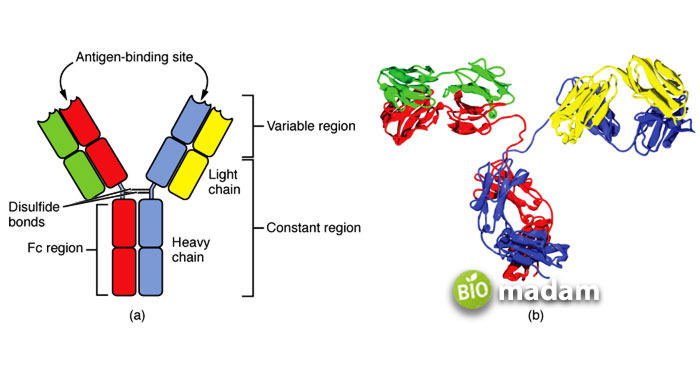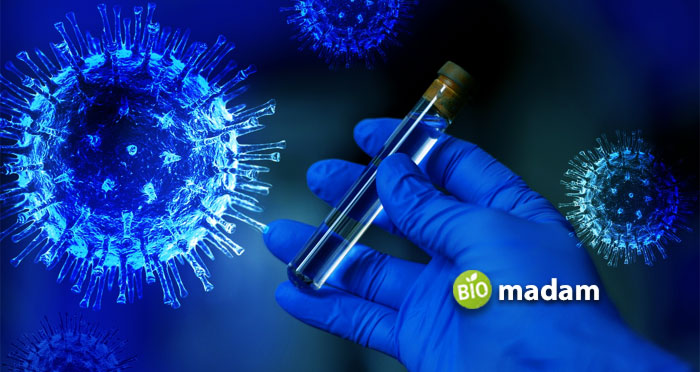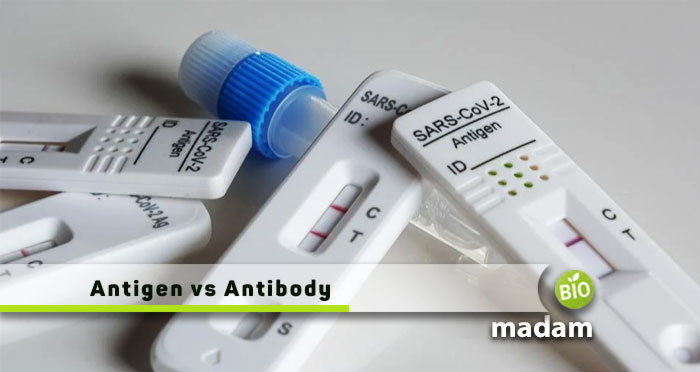Recently updated on October 5th, 2023 at 05:56 am
Antigen and antibodies are frequently used terminologies in microbiology and science when studying infections and diseases and human immune functioning. They are two opposite yet critical parts of the immune system. In simple words, an antigen is a foreign entity like a virus that enters your body intending to cause harm, and the body produces antibodies in response to the antigen. An antigen typically tries to hurt the body, whereas antibodies work to save your body from potential harm. We have simplified the difference between antigen and antibody for easy understanding.
Comparison Table
| Characteristics | Antigen | Antibodies |
| Definition | Outside substance/toxin | Immune response to antigens |
| Another name | Immunogen | Immunoglobulin |
| Origin | Foreign entity mostly | Produced by body |
| Composition | Carbs, fats, RNA, DNA, lipids | Glycoproteins |
| Function | Causes diseases/allergy | Fights antigen, and prevents disease |
| Types | Exogenous, endogenous, and tumor antigen | IgA, IgD, IgE, IgG, IgM |
| Interaction type | Key | Lock |
| Examples | Rh antigens | Anti-A, Anti-B |
What is Antigen?
Antigen refers to any foreign body or substance that enters your body and may be potentially hazardous. When an antigen enters your body, it triggers the immune response, and your body cells (lymphocytes) run to the site of the antigen to fight it. Antigens are divided into several types based on different parameters. Some antigen classifications are exogenous, endogenous, autoantigens, and tumor antigens.
Types of Antigens
Exogenous Antigens
Exogenous antigens refer to antigens that enter the body from the outside environment. They enter through the nasal or oral route like pollen entering your airway through the nose.
Endogenous Antigens
Endogenous antigens are prepared within the body due to a response to another stimulus. The stimulus could be a metabolic activity within the body or an entity like bacteria or viruses.
Autoantigens
Autoantigens are a widely known category of antigens and are typically produced in people with autoimmune diseases. Their bodies produce these antigens due to any mutation, and your body has to fight its own system.
Tumor Antigen
As the name indicates, tumor antigens are present on tumor cell surfaces and stimulate an immune response in the body.
Examples of Antigens
Blood group antigens are the most widely known antigens, but they do not harm the body until a reaction occurs. The red blood cells in our bodies have sugars and proteins that give the +ve or -ve blood group. These antigens are known as Rh, and a person with Rh antigen gets a positive blood group while a person with a negative blood group does not have these antigens. The presence or absence of Rh gives us eight blood groups, A+, A-, B+, B-, AB+, AB-, O+, and O-ve. When you transfuse a positive blood group to a negative blood group individual, the body will generate antibodies as an immune response and may harm its cells.

What are Antibodies?
Antibodies are specialized blood proteins produced in a body to counteract an antigen or foreign body. Antibodies work on the antigens to remove them from the body and prevent harm. When a foreign entity enters the body, the immune system acknowledges it as an invader and produces antibodies to fight the antigen. The antibodies are called immunoglobulins, a globular protein structure, and are produced by specific white blood cells.
Types of Antibodies
Immunoglobulins are of five main types, yet the number of antibodies is multiple, and each antigen attaches to a specific binding site on the antibody.
Immunoglobulin A (IgA)
Immunoglobulin A makes up 15% of all the antibodies in the human body. These antibodies are excessively found in mucosal cells and tissues of the digestive tract, including the small and large intestines, and the respiratory tract. Lamina propria, a thin layer in the mucosal tissues, secretes these antibodies that act as the first-line defense against viral and bacterial infections.
It mainly causes hypersensitivity reactions in autoimmune diseases. IgA works by binding to the pathogens and preventing them from sticking to the epithelium.
Immunoglobulin D (IgD)
Immunoglobulin D is only about 0.25% of the total antibody count in the human body. IgD also contributes to the initial immune response by acting as a signaling agent to stimulate IgM release. It does not distribute in the body like other immunoglobulins; instead, it binds to B and T cells.
Immunoglobulin E (IgE)
Immunoglobulin E is responsible for hypersensitivity reactions in the body. IgE are produced by B lymphocytes formed by lymphoid tissues. It is widely distributed in the skin and both lungs. Cells, including mast cells and basophils, are involved in the immune response generated by IgE by releasing histamine that produces hypersensitivity symptoms.
Immunoglobulin G (IgG)
Immunoglobulin G is mainly involved in destroying the antigen by releasing toxins or tagging it and leaving for another antibody to recognize and destroy it. They are present in the highest amount in the body, comprising up to 75% of the antibodies.
Immunoglobulin M (IgM)
Immunoglobulin M acts to fight a foreign body by recognizing itself or signaled by another antibody. When your body comes across a foreign entity, IgM multiplies and signals IgG to kill the pathogen. They are produced by B cells and attach to the pathogen to stimulate other antibodies to attack.
Examples of Antibodies
When the blood of an Rh-positive group is transfused to a person with an Rh-negative blood group, the body takes the Rh antigens as a threat and produces antibodies. These antibodies tend to attack blood and cause a transfusion reaction. It is common in pregnant ladies if the fetus has a different blood antigen than the mother.

Difference Between Antigen and Antibody
Definition
Antigen
An antigen is any entity that stimulates an immune response.
Antibodies
Antibodies are proteins produced by the body as a result of the antigen.
Other Names
Antigen
Antigens are also known as Immunogens as they cause the immune system to generate a response.
Antibodies
Antibodies are also known as immunoglobulins based on their structure and composition.
Composition
Antigen
Antigens could be made of carbohydrates, proteins, lipids, or nucleic acids.
Antibodies
Antibodies are primarily composed of glycoproteins.
Function
Antigens
Antigens may cause a hypersensitivity reaction or disease if not removed from the body timely.
Antibodies
Antibodies are responsible for fighting antigens and preventing disease.
Types
Antigens
Antigens are of multiple types like endogenous, exogenous, tumor antigens, etc.
Antibodies
Antibodies are classified into five main types; Immunoglobulin A, Immunoglobulin D, Immunoglobulin E, Immunoglobulin G, and Immunoglobulin M.
Interaction
Antigens
Antigens act as the key to an antigen-antibody reaction.
Antibodies
Antibodies perform as the lock during an antigen-antibody reaction.
Examples
Antigens
Examples of antigens include viruses, bacteria, Rh antigens, etc.
Antibodies
Some examples of antibodies in the blood are Anti-A, Anti-B, etc.

FAQs
What are the properties of antigens?
- The molecular mass of antigens is between 14,000 and 600,000 Da.
- They are made of proteins and polysaccharides.
- A highly complex antigen stimulates a more severe immune reaction.
How many antibodies are there in the human body?
While there are five main types of antibodies, the human body can produce over a trillion unique antibodies.
What is the difference between antigen and antibody COVID-19 tests?
Different diagnostics tests are used regarding Covid-19, including antigen tests, antibody tests, and molecular tests. Antigen test depicts an active infection, while antibody tests show the presence of antibodies due to prior infection.
The Bottom Line
Antigens can be described as any foreign body that stimulates an immune response when it enters the body; antigens can also result from an autoimmune response. However, antibodies develop due to an antigen in the body and bind to that particular antigen and remove it. Antigens can be composed of different substances as there is a wide range of antigens, and the body produces glycoprotein antibodies.

Hello, I would like to introduce myself to you! I am Chelsea Rogers, an experienced blog writer for science articles, holding an MPhil degree. My enthusiasm to grab the best knowledge, let it relate to botany, zoology, or any other science branch. Read my articles & let me wait for your words s in the comment section.


This is very helpful information. I am very grateful